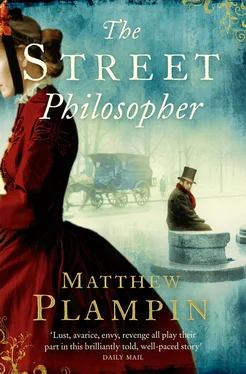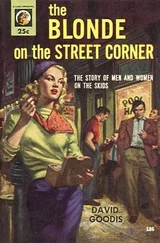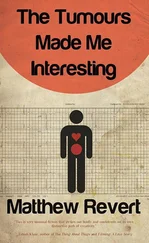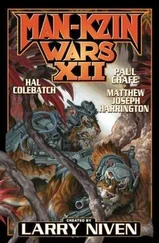Blinking, Kitson remembered the telegram, which he’d tucked inside the pocketbook’s front cover. He pulled it out. The crumpled piece of yellowed paper bore terse words from O’Farrell back in London, shouted out in mechanical script: Illustrator Robert Styles STOP Lands Eupatoria sixteenth September STOP HMS Arthur STOP . It had arrived about three weeks earlier, at the telegraph office in Varna. Cracknell, predictably enough, hadn’t been impressed.
‘Men dropping dead from bloody cholera all around us, not a drop of decent brandy for five hundred bloody miles, a bloody great war about to commence, and what does our editor send out to his brave correspondents? A bloody illustrator !’
Kitson had muttered his concurrence. Inwardly, however, he’d been intrigued, and pleased that the London Courier’ s reporting team was to be enlarged. After months spent following Richard Cracknell through the brothels and slums of Constantinople, and then trailing behind him across the meadows of Bulgaria, Kitson had come to feel almost as if he were a manservant rather than a junior reporting partner. The thought of a peer, an equal, had a distinct appeal–and what was more, this Mr Styles, as an illustrator, a professional artist, would surely be a man of some culture. He’d know about the successes and failures of the Academy Summer Exhibition, at least. Kitson longed for such conversation in a manner he wouldn’t have thought possible half a year earlier.
Before him, the waiting hussars yelled encouragement as horses started to reach the shore. Kitson looked up from the telegram. The blue-jackets in the sea were attempting to get hold of the dazed animals before they could stagger out of the water, but the men were inexperienced, and allowed many to escape. Once on the beach, the horses shook their manes, looked quickly about them, and then bolted. One, a grey, charged by close to where Kitson stood, hooves clattering through the stones, eyes wide with fear, water streaming down its sea-darkened flanks. Several hussars gave chase, raising their arms in the air, whistling shrill signals that, on this occasion, the highly trained horse failed even to notice.
The stiff breeze knocked off one of the cavalrymen’s busbies. Cursing, he left the pursuit and strode crossly to where it lay amongst the pebbles.
Seeing his chance, Kitson tucked away the telegram and turned over a fresh page in his pocketbook. ‘Excuse me, trooper, but might I enquire as to your orders? D’you know when are we to move upon Sebastopol?’
The hussar was a tall corporal with a thick blond moustache, dressed in the blue overalls of the King’s Royal Irish. He snatched up the busby and brushed it roughly with the back of his hand. Then he looked at Kitson, irritation written plainly on his face. ‘What?’
‘I’m from the London Courier ,’ Kitson explained. ‘We are reporting on the campaign.’
‘And why the devil would you be doin’ that?’
Kitson met the man’s hostile stare with a brief, amiable grin. He had been asked similar questions many times before, in the same suspicious tones, and had a standard response. ‘Why, so that the British public might read of the heroism of their troops, of course, and the progress of their noble undertaking, thereby easing—’
The hussar was not listening. ‘I cannot be seen conversin’ with the likes of you,’ he interrupted impatiently, tugging the busby’s golden strap under his chin. ‘Now get out the damned way.’
His shoulder struck hard against Kitson’s as he sprinted off after the errant horse, which was now somewhere amongst the piles of supplies that covered the rear of the landing zone. Kitson staggered, losing his footing for a moment, and dropping his pocketbook as he waved an arm to steady himself. As he stooped to pick it up, the telegram fell from beneath its cover. Caught by the wind, the slip of paper curled away across the stones, rising up into the air. For a moment, Kitson considered giving chase; but then just watched it go.
The H.M.S. Arthur , one of the older frigates in the bay, was anchored a good distance from the beach with her sails rolled. As her passengers were non-military, she had been allocated only two longboats, making the disembarkation painfully, tediously slow. In addition, the ship was taking on cholera cases for immediate transport back to Scutari. Every longboat from the Arthur , after it had been pulled up on to the stones and disgorged its civilian cargo, then had to be loaded with pale, moaning soldiers, each one bound to a stretcher, before it could sail back. Like every other operation that day, lifting the sick up to the ship once they reached her was made many times more difficult by the swell. At least two had been lost to the waves.
The invalids were receiving a great deal of attention from those leaving the Arthur . The majority were soldiers’ wives who had been camped out with the army throughout the miserable summer in Varna, but left behind when the invasion force had set sail for the Crimea. Rows of anxious faces, framed by grimy bonnets, poked over the deck rail, both hopeful and fearful that someone familiar might be among those being carried aboard so precariously. They gasped when the sailors stumbled, and they wailed when men went into the sea; but they’d already seen far too much death that year to be badly shocked.
Kitson approached the cholera cases awaiting evacuation. They were laid out in lines across the shingle like rotten railway sleepers. He looked at the soldiers’ stained uniforms, streaked with vomit and faeces, their waxy, agonised faces, their rigid limbs that poked out awkwardly from under their blankets like snapped branches, and felt nothing but relief that he had so far managed to escape infection. This cold-hearted reaction would have shamed him six months earlier. Like the soldiers’ wives, however, like everyone on the campaign, he had grown somewhat hardened against the misery of others.
He picked his way around to where the disembarked wives had gathered in a large crowd, huddled against the wind, shawls drawn in close around them. Many were calling out names at the invalids, in the slight hope of eliciting responses from them. The only able-bodied men present were the servants of the few officers’ wives who had been obliged to travel aboard the Arthur , standing alongside their mistresses, a little apart from the grubby spouses of the common soldiery. There was no one present who might conceivably be Mr Styles. Kitson perched on a coil of thick navy rope and lit a cigar, settling down to wait.
Before long, another longboat scraped up on to the shore. Drab civilians piled over its sides, many not waiting for the landing planks in their eagerness to walk again upon dry land. As they dispersed, drifting off into a maze of crates, sacks and assorted pieces of military machinery, Kitson noticed a man vault athletically out of the boat. He threw a leather folder and a canvas bag to the ground, and turned quickly to offer his arm to a slender young woman who was stepping on to the top of a landing plank, holding up the hem of her skirts before descending with practised grace. The poise and careful courtesy of this interaction appeared entirely out of place in that dreary, chaotic afternoon. As Kitson watched, the man retrieved his belongings and the pair started in his direction, the lady’s gloved hand in his elbow, their heads lowered against the breeze. A group of sailors heaved a large mahogany trunk from the longboat, puffing as they rushed it inland, overtaking the strolling couple. After thirty yards or so, they set it down with a groan; the black chest was so heavy that it sank several inches into the pebbles. Rubbing their sore palms together, the blue-jackets promptly returned to their boats.
Читать дальше











